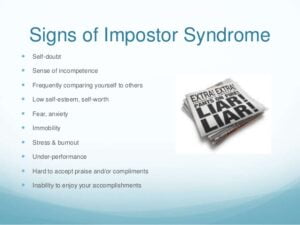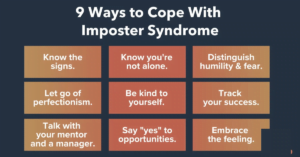Imposter Syndrome Test
Contents
Imposter Syndrome Test
Are you feeling like a fraud? Do you think there is something wrong with you because you are so successful? Imposter syndrome can be an overwhelming feeling that can cause anxiety and stress. There are many different ways to help control your feelings of anxiety. One way is to understand that no one’s success is definitive or stable. You can fail at your task even if you worked really hard for it and put in a lot of effort. Here is a test to help you figure out if you are suffering from imposter syndrome:
Test yourself for imposter syndrome: The best way to determine if someone has imposter syndrome is by evaluating their feelings about their achievements in comparison with their actual achievements. If someone is obsessed with the idea that they are not good enough, chances are they may be suffering from imposter syndrome.
What Is Imposter Syndrome?

Imposter syndrome is a phenomenon that makes people feel like they do not deserve their success and that there is someone else who would be more deserving. It also makes people feel like a fraud or that they will inevitably fail at their task. You might ask yourself questions such as “Am I really good enough?” or “Is the person I’m meeting without of my league?” Imposter Syndrome can manifest itself in many different ways, so this article seeks to diagnose the symptoms and provide helpful tips for how to cope with this disorder.
People who suffer from this disorder tend to have perfectionist tendencies. This might be one reason why imposter syndrome is so common amongst successful people. A person with imposter syndrome will usually wonder whether they are good enough, if their work is really worth anything, or if they will eventually be exposed as incompetent.
People with imposter syndrome tend to measure themselves against other people’s accomplishments and would feel like a fraud if someone said they were accomplished too, even if this might not be the case at all. If you are suffering from this disorder it is important that you learn how to control your feelings of anxiety (more on this later).
Symptoms Of Imposter Syndrome
 The symptoms of imposter syndrome are judging yourself against others and feeling like you can’t measure up to their accomplishments. This makes it hard to measure your own success and worth as an individual. The following are symptoms of imposter syndrome:
The symptoms of imposter syndrome are judging yourself against others and feeling like you can’t measure up to their accomplishments. This makes it hard to measure your own success and worth as an individual. The following are symptoms of imposter syndrome:
- People who suffer from imposter syndrome may feel like a fraud, even though they have achieved accomplishments others only dream of
- People who suffer from imposter syndrome may feel like an impostor when they meet new people and worry about how to respond to compliments.
- Imposter syndrome is a pervasive feeling that can lead to anxiety and stress.
- Imposter syndrome can negatively affect relationships
- It causes people to lose motivation and feel like giving up
- The following are symptoms of imposter syndrome:
- Imposter syndrome is a pervasive feeling that can lead to anxiety and stress.
- Imposter syndrome can negatively affect relationships.
- It causes people to lose motivation and feel like giving up.
How to know if you are suffering from this disorder: The best way to determine if someone has imposter syndrome is by evaluating their feelings about their achievements in comparison with their actual achievements. If someone is obsessed with the idea that they are not good enough, chances are they may be suffering from imposter syndrome.
Imposture (The State Of Being An Impostor)
An imposter is a term used to describe high-achieving individuals who are marked by an inability to internalize their accomplishments and a persistent fear of being exposed as frauds. Those that suffer from imposter syndrome have feelings of inadequacy. Even when they accomplish something great or receive positive feedback on their achievements.
Impostor syndrome is a psychological phenomenon in which people are unable to internalize their accomplishments. Despite external evidence of their competence, those with the syndrome remain convinced that they are frauds and do not deserve the success they have achieved. Proof of success is dismissed as luck, timing, or as a result of deceiving others into thinking they are more intelligent and competent than they believe themselves to be.
Who Should Test For Imposter Syndrome?

Impostor syndrome is most common among high-achieving women. Although it affects both men and women. Women are more likely to experience imposter syndrome because many holds internalized beliefs about the value of their work that do not match the positive feedback they receive from others. Women compare themselves to a smaller standard of success and often face greater challenges than men when trying to balance work and family.
Impostor syndrome is also more common among ethnic minorities and individuals who have non-traditional educational backgrounds for their careers. People with imposter syndrome want to be seen as normal, average people instead of extraordinary. They perceive themselves as ordinary individuals who have accomplished extraordinary things in spite of their self-doubt.
Convinced that everyone around them is smarter and more skilled than they are. People with imposter syndrome constantly fear being exposed for the frauds they feel like they are. They avoid taking on new challenges to limit the chance of failure but avoid success and recognition. So they don’t feel fake or inauthentic.
Imposter Syndrome And Mental Health

Impostor syndrome can lead to depression and other mental health issues if left unaddressed. Feeling like a fraud can disrupt daily life and put undue pressure. Especially on people who think they will be exposed as the incompetents, they believe themselves to be. If you suffer from impostor syndrome, recognize that you are not alone and that it is okay to be different. You aren’t pretending or lying. You just do things in your own unique way.
It’s not always easy to overcome imposter syndrome. But there are ways to help alleviate the stress caused by feelings of inadequacy. Talk with trusted friends about how you feel so that you can hear that your feelings are valid. If it helps, keep a journal of your accomplishments and the positive feedback they received to remind yourself what you have accomplished in spite of feeling like an impostor.
Most importantly, make sure your achievements outweigh your perceived failures by focusing on what you do right and not what you think is wrong with you.
When someone with imposter syndrome seemingly fails at something they will give it credit and blame it on factors that were out of their control. This is because they are not confident enough to acknowledge their own flaws and weaknesses.
It’s common for the imposter syndrome sufferer to blame others for their failures instead of taking responsibility. They often blame bad luck or timing for everything that’s gone wrong in their life, even if it has nothing to do with either factor.
Coping With Impostor Syndrome
There are many different ways to help you cope with imposter syndrome. First of all, you need to understand that no one’s success is definitive or stable. You can fail at your task even if you worked really hard for it and put in a lot of effort. Some people say that you should understand your limitations and use them to motivate yourself. Instead of feeling like an impostor if someone compliments you on something that you worked really hard on. This can also help you become more confident in your work. After all, self-confidence is important for success.
The following are ways to cope with Imposter syndrome:

- Avoid comparing yourself to others. Do your best and don’t worry about what other people do or accomplish.
- Don’t avoid people. If you are feeling awkward, just approach the person in a friendly manner and allow yourself to be open to new relationships.
- Take good care of yourself with proper diet, exercise, and adequate sleep. These activities will help boost your self-esteem.
- It is okay to make mistakes occasionally. Remember that no one is perfect.
- Admit your mistakes and never be afraid to ask for help or forgiveness if you need it.
- Don’t worry about what other people think of you. Just do what makes you happy and live life to the fullest.
According to the book “The Secret Thoughts of Successful Women” by Valerie Young. Imposter syndrome occurs when people are afraid that they will be found out as frauds or not smart enough. The problem with feeling like this is brought on by negative thought patterns. When someone feels inadequate, their brain releases cortisol which slows down their performance causing them to make mistakes.
Conclusion
Imposter Syndrome is a common mental health disorder that affects both men and women. When people with impostor syndrome feel like they are not good enough. It can lead to depression or other mental health issues if left unaddressed. Imposter syndrome test will help you recognize your feelings of inadequacy as valid by talking about them by testing with friends you trust. So you hear how others perceive you differently than what you believe yourself to be worth. It’s important for the person suffering from Impostor Syndrome to focus on their achievements. Instead of perceived failures in order to overcome this disorder.
If you are looking for affordable Online Counseling MantraCare can help: Book a trial therapy session


